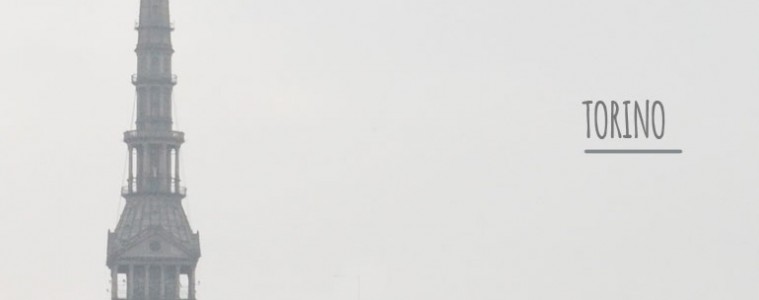This post is also available in English
Come vi raccontavo la visita a Operae è stata occasione per un bel giro a Torino. Purtroppo questa volta niente sole ma un grigia giornata di ottobre.
As I told you when I went to visit Operae I also have some time to have a nice tour in Torino. Unfortunately this time no sunny day but a grey October day.
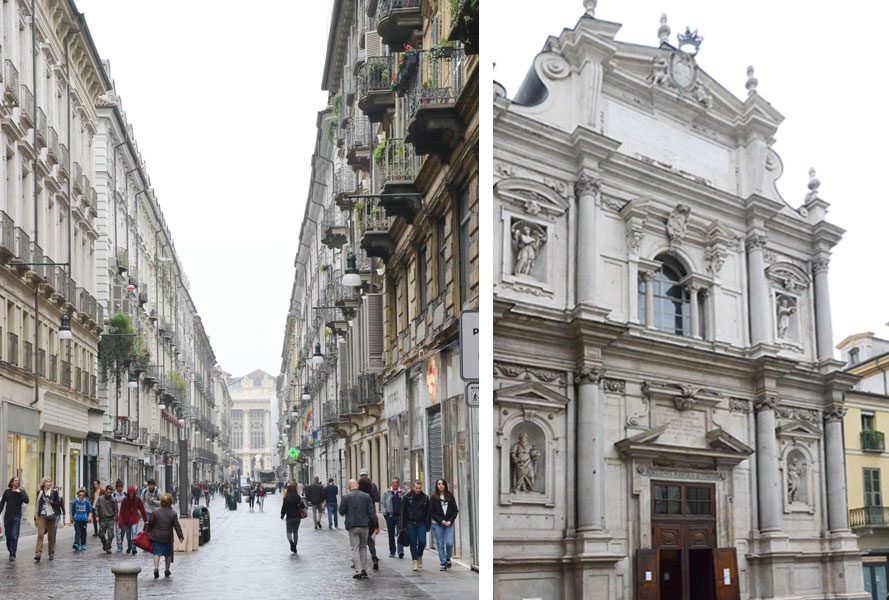
E’ sempre bello passeggiare per Torino. La zona del centro con le sue vie, i portici fino a Piazza Castello con il Palazzo Madama e Palazzo Reale.
It’s always nice walking around in Turin. The center area with small roads, colonnades, Piazza Castello with Madama Palace and the Royal Palace.
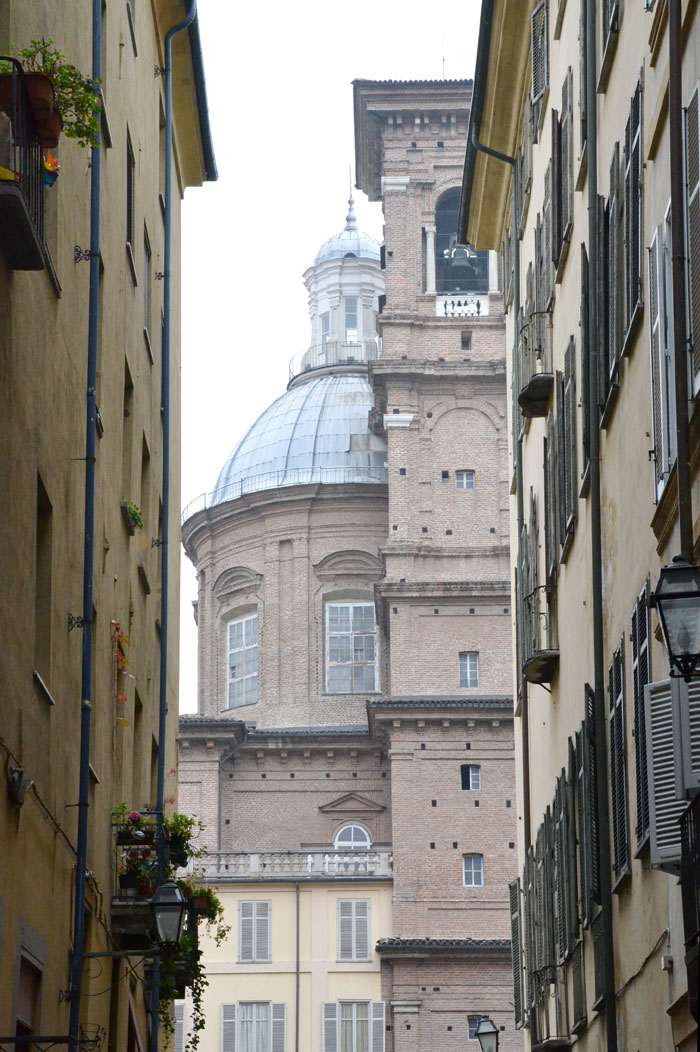


A Torino sono arrivata in treno a Porta Susa e il giro che ho fatto è stato più o meno questo:
I went to Turin by train – Porta Susa Station – and this was more or less my tour:
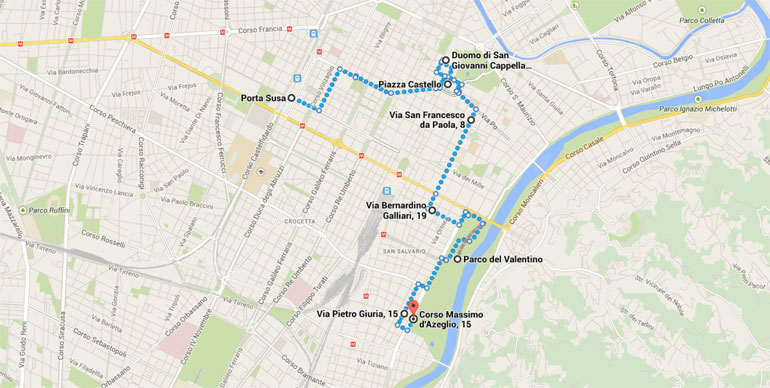
Vicino al Museo Egizio si trova Palazzo Carignano, bellissimo esempio di architettura barocca, sede del primo parlamento italiano. Oggi ospita il museo del Risorgimento.
Near the Egyptian Museum there is Palazzo Carignano, a beautiful example of Baroque architecture. This was the first location of the Italian parliament. Today here there is the Museum of Italian Risorgimento.

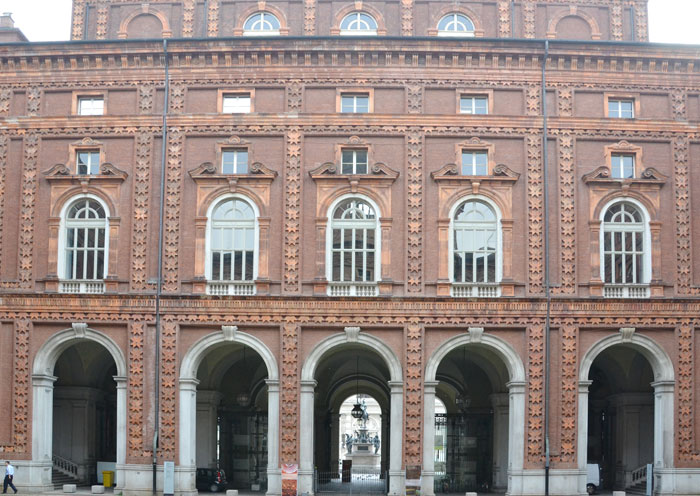
Le decorazioni a stella che tanto lo caratterizzano le si ritrova in una lettura moderna sul fianco del Teatro Regio.
Star decorations are beautiful and you can find them in a modern interpretation also on the side of the Teatro Regio.


La biblioteca nazionale e la Galleria liberty Umberto I.
The National Library and the Art Nuveau Gallery Umberto I.


Grande protagonista è sempre la Mole Antonelliana.
The Mole Antonelliana is always a great star.

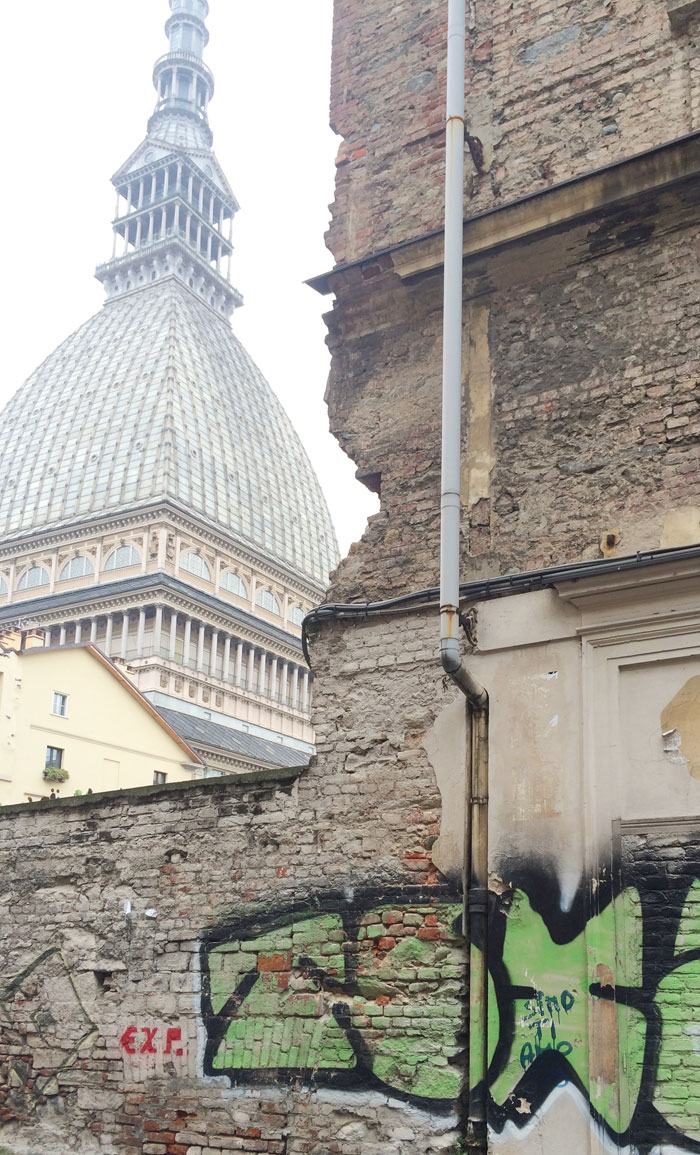
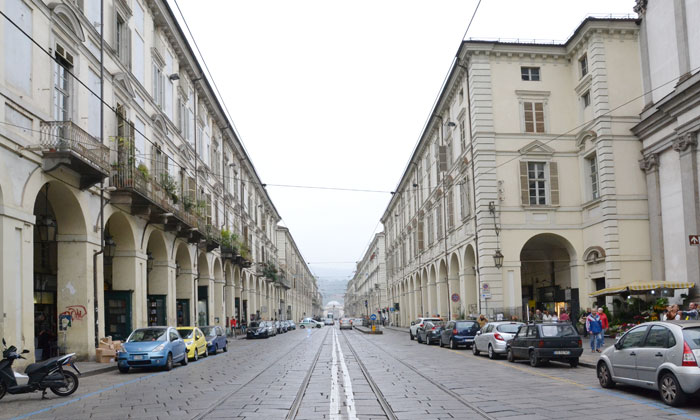
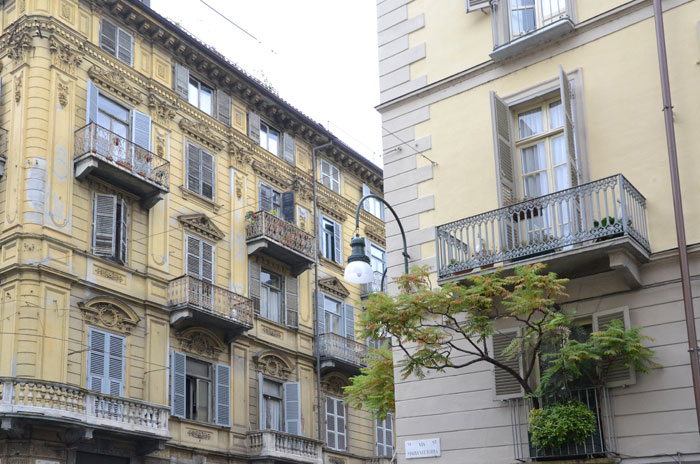
Andando verso il Po si arriva al Castello del Valentino nell’omonimo parco dove d’estate è possibile visitare il bellissimo giardino botanico. Oggi il Valentino è in parte sede del Politecnico di Torino, facoltà di architettura. Sicuramente un luogo di ispirazione!
Near the Po river there is the Valentino Castle in the Valentino Park where during the Summer you can visit the beautiful botanical garden. Today the Valentino Castle is the location of the school of architecture. It’s surely a place full of inspirations!
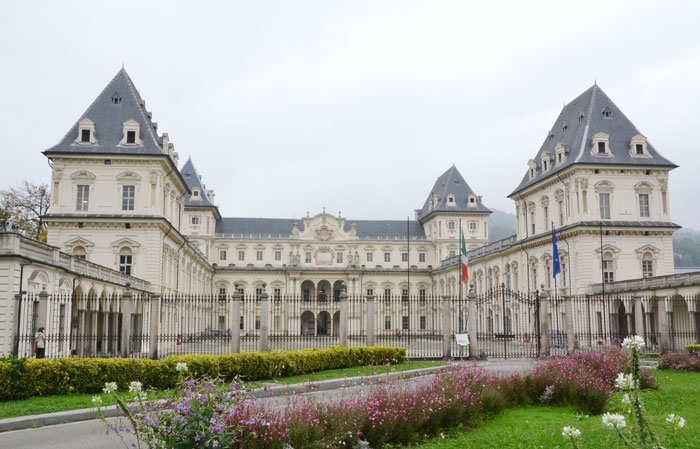

Devo ammettere che il giro è stato pensato per andare a visitare un museo in particolare: il Museo della Frutta! Ne avevo sentito parlare tempo fa e mi aveva molto incuriosito. Il museo della frutta è ospitato nel Palazzo degli Istituti Anatomici insieme a quello di Anatomia e a quello di Antropologia Criminale “Cesare Lombroso”.
I have to admit that I made this tour because I wanted to visit a particular museum: the Museum of the Fruit! I’ve heard about it some times ago and I was very curious. It’s located in the Palazzo degli Istituti Anatomici where there is also the Anatomy Museum and the Criminal Anthropology “Cesare Lombroso”.
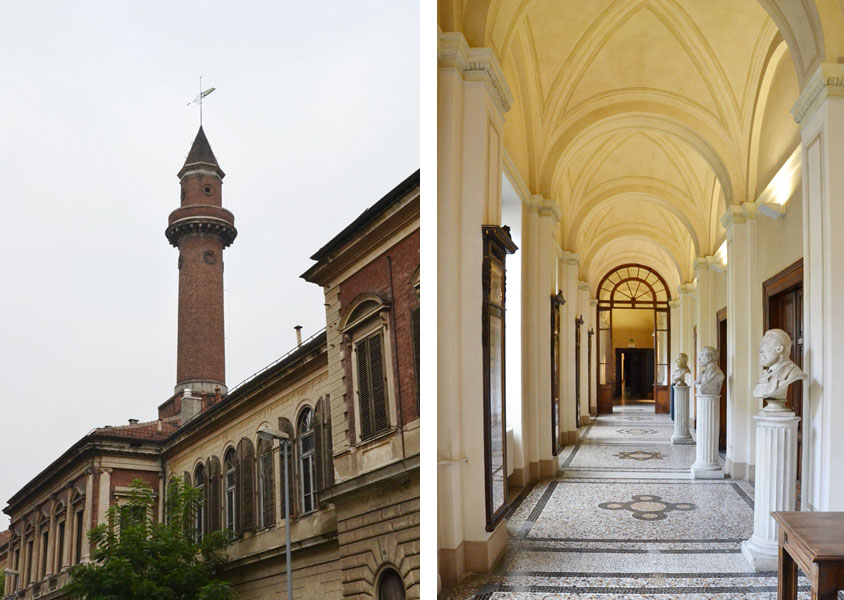
E’ significativo che il Museo della Frutta sia in questa zona di Torino, San Salvario, dove c’erano frutteti e dove la Regia Stazione Chimico-Agraria ebbe inizio alla fine dell’800. Il protagonista del museo è Francesco Garnier Valletti, pomologo. Garnier Valletti aveva iniziato lavorando lo zucchero e realizzando fiori bellissimi che vengono esposti a Milano, a Brera, a Vienna, San Pietroburgo… Erano talmente belli e somiglianti al vero che l’imperatore Ferdinando gli suggerì di provare a realizzare anche i frutti. E così Garnier Valletti fece raggiungendo la perfezione. Frutti di cera e resine, in una ricetta segreta. Grandissima attenzione anche ai vari gradi di maturazione e deterioramento. Insieme ad Augusto Bourdin, vivaista, iniziarono a pensare ad un museo della frutta, in anni di vera catalogazione scientifica. Garnier Valletti espose i suoi frutti nelle esposizioni internazionali, i suoi frutti arrivarono addirittura anche in Australia, a Melbourne.
This location of the Fruits Museum is meaningful: here, in the San Salvario district, there were orchards and the Regia Stazione Chimico-Agraria started here. Francesco Garnieri Valletti is the star of the museum. He started making beautiful flowers with sugar. They were exhibited in Milan, at the Brera Accademy, in Vienna, in St. Petersburg… His flowers were so beautiful and similar to the original that the emperor Ferdinando in person told him to try with fruits. And so Garnier Valletti did and they were perfect. Fruits are made in wax and resin, the original recipe is still unknown. He had great attention for details also watching about maturation and decline. He started with Augusto Bourdin to think about a museum of fruits. Garnier Valletti exhibited his fruits in many international shows, his fruits went also to Australia, in Melbourne.
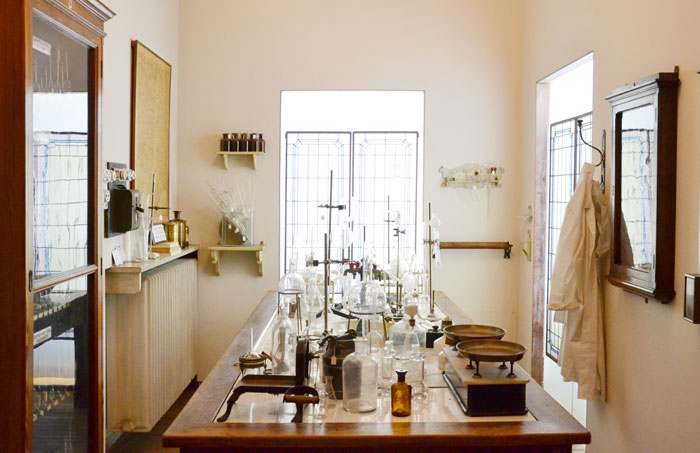
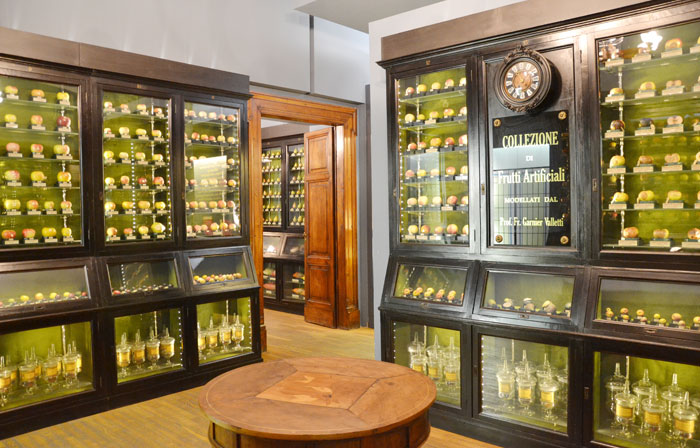
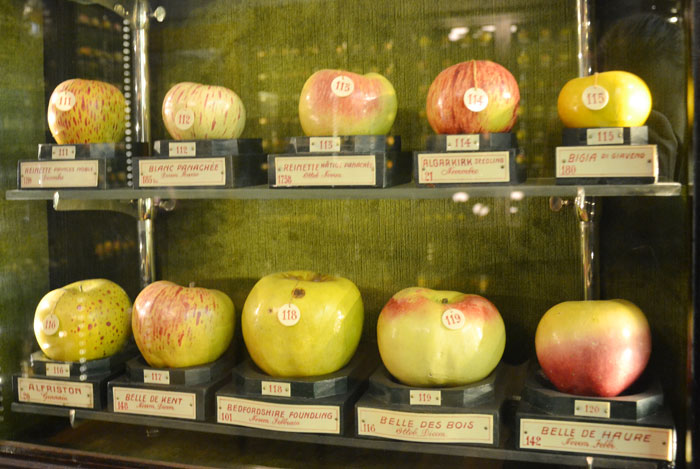
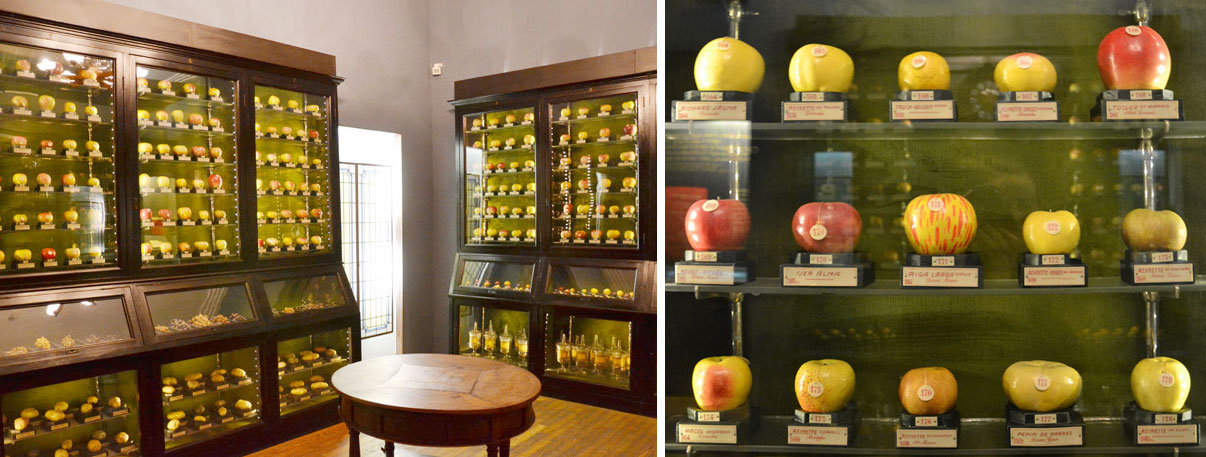
Finalmente il museo è stato realizzato e l’arte di Francesco Garnieri Valletti riconosciuta. Nel museo si trovano vetrine piene di mele e pere, ma anche altri frutti come fichi, ciliegie, prugne… ma anche patate, funghi e bellissime barbabietole. Un museo poco conosciuto ma sicuramente molto interessante!
Finally the museum is open and the Francesco Garnieri Valletti’s art is celebrated. In the museum you can find display cabinets full of apples and pears, but also other fruits as figs, cherries, plums… but also potatoes, mushrooms and beautiful beets. A very special museum not very popular but very interesting!

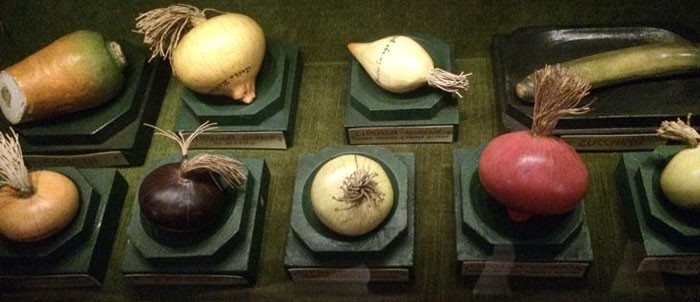
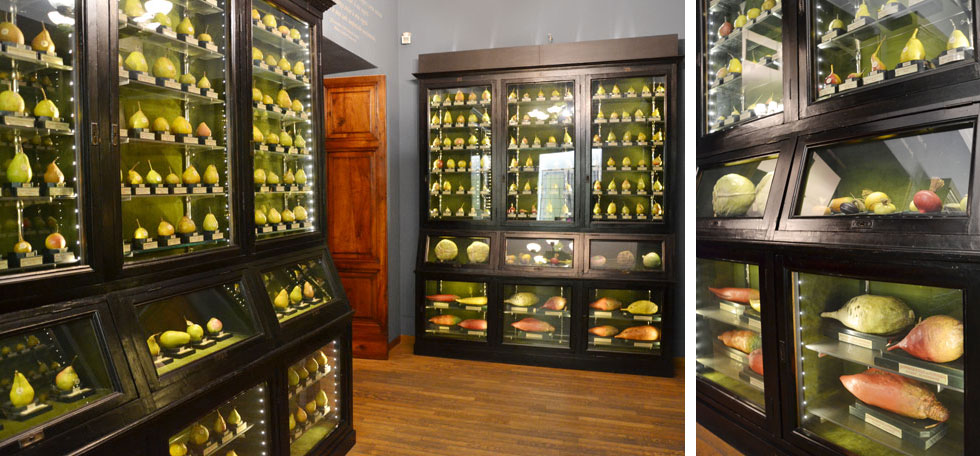
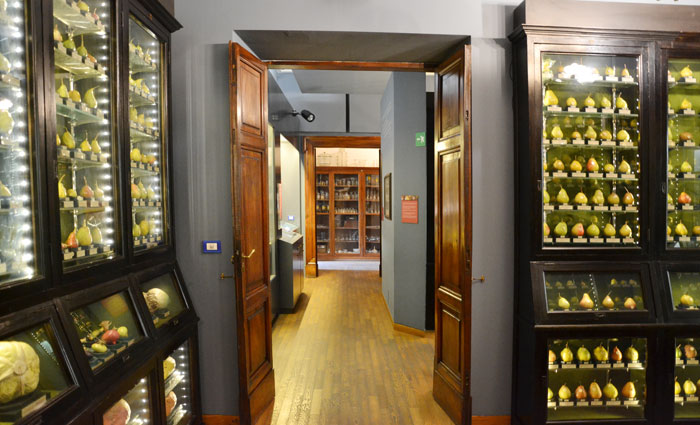
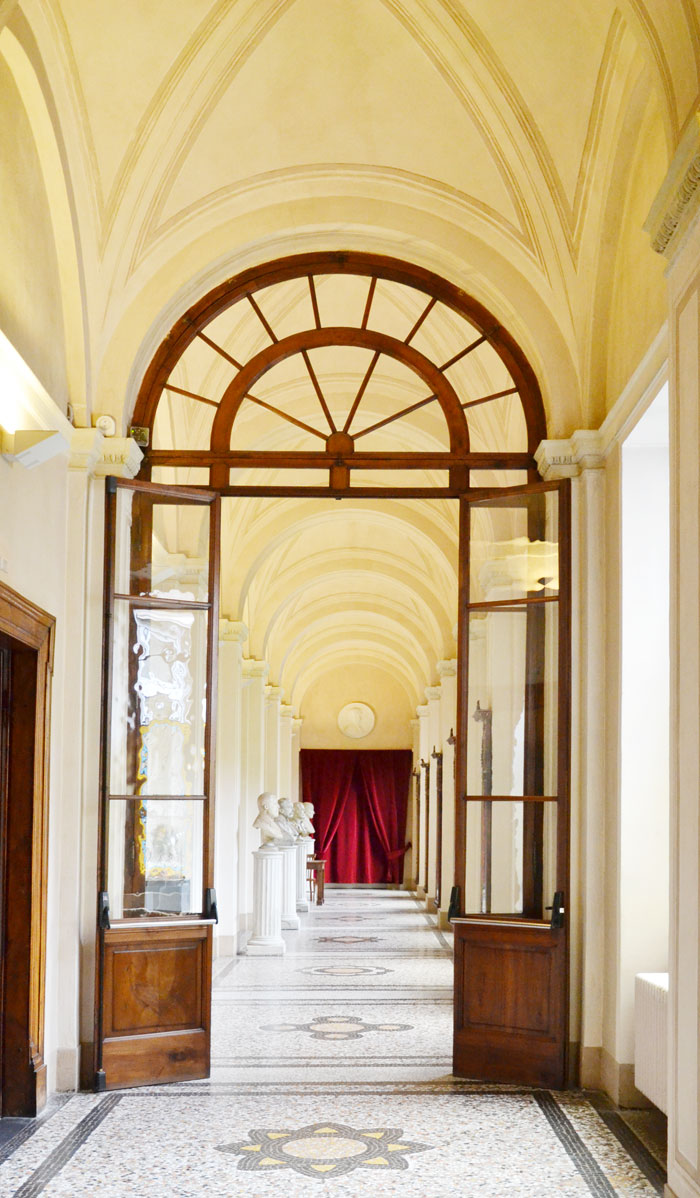
Enjoy!

